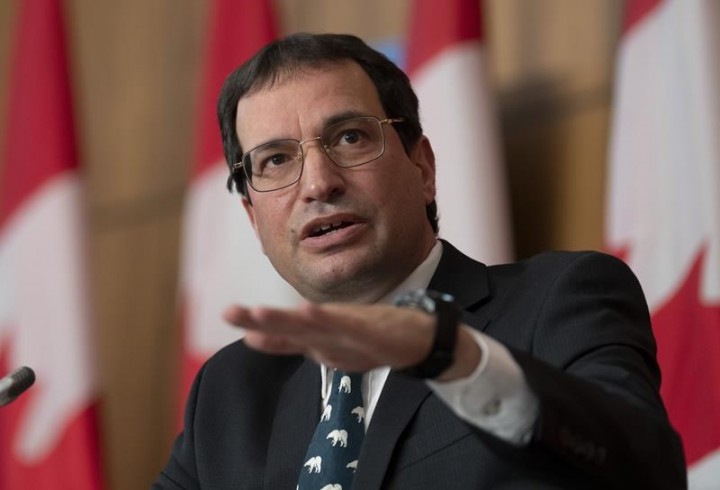OTTAWA — Canada’s environment commissioner says the country’s carbon pricing system is disproportionately hard on Indigenous communities and small businesses and not hard enough on the biggest emitters.
Jerry DeMarco issued five audit reports Tuesday on carbon pricing, transitioning workers away from fossil fuel industries, hydrogen energy, climate-related infrastructure policies and the government’s efforts to cut its own emissions.
The carbon pricing audit comes three years after the federal Liberals implemented a law requiring provinces to have a minimum price on greenhouse gas emissions, or use a federal system instead. The price began in 2019 as $20 a tonne of emissions, and hit $50 on April 1. It is to rise by $15 a year annually now until 2030.
DeMarco says there is a “broad consensus” among experts, including the World Bank, the OECD and the International Monetary Fund, that carbon pricing is a critical tool for curbing greenhouse gas emissions.
“As is recognized by the Supreme Court of Canada and many international organizations, effective carbon pollution pricing drives changes in consumer and producer behaviour that in turn reduce overall greenhouse gas emissions,” he says in a written statement. “Carbon pricing is therefore essential if Canada is to finally succeed in significantly reducing its greenhouse gas emissions.”
But he says Canada’s system hasn’t done enough to ensure the carbon price is applied fairly to the biggest industrial emitters.
There is not enough sunlight exposing how well provincial systems compare to the federal benchmark, he adds, and grant money to help small businesses become more energy efficient has been slow to roll out.
Most provinces have their own pricing systems for big emitters that Ottawa has approved. But the audit says there aren’t enough controls to ensure they are on par with what the federal benchmark would do, and the cost to industries varies widely between provinces.
DeMarco says the weakness of the big industrial system is undermining the “polluter pays” principle of carbon pricing.
In general, heavy industries pay the carbon price only on a small portion of the emissions they generate rather than on all of the emissions produced by the fuels they purchase. That plan attempts to prevent economically devastating impacts on companies that could compel them to move elsewhere, while still ensuring there is an incentive to cut their emissions.
A fuel purchase levy is how consumers and smaller businesses pay the carbon price. Consumers get rebates from the federal government to offset those higher costs, while still having an incentive that they would save money by cutting their fuel use.
DeMarco’s report also says the government is both “unprepared and slow off the mark” responding to the need to help more than 170,000 fossil fuel workers prepare for a transition to a cleaner energy economy.
The government has been promising legislation for what it calls the “just transition” for more than two years but has yet to deliver it. A just transition plan is a critical part of getting public buy-in for moving away from fossil fuels and toward lower-emitting and zero-emitting sources of energy.
DeMarco’s audit says there is no implementation plan and no monitoring or reporting system to support this transition.
He also says a transition program created for coal-industry workers relied heavily on existing unemployment training policies without good measurements of how effective they are.
DeMarco adds Infrastructure Canada isn’t requiring or receiving reliable information about the climate impact of the projects it funds. He says the original climate lens to be applied to new infrastructure projects in 2018 was watered down in 2021, and no longer can accurately account for the impact the projects will have on climate action.
This report by The Canadian Press was first published April 26, 2022.
Mia Rabson, The Canadian Press
